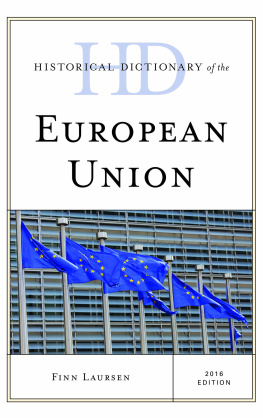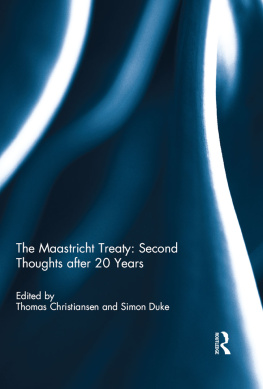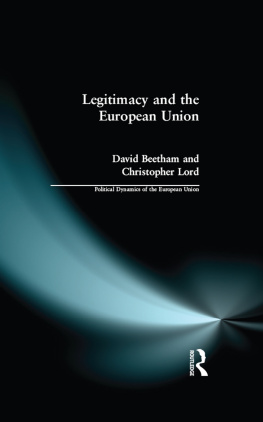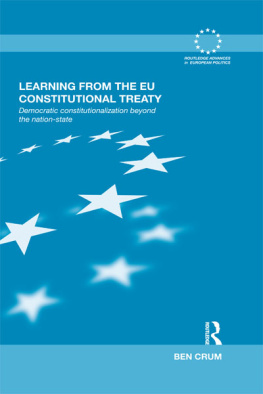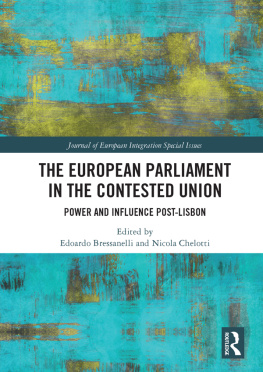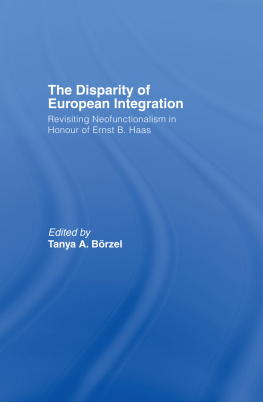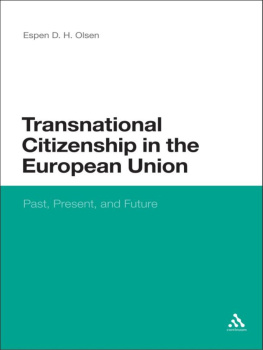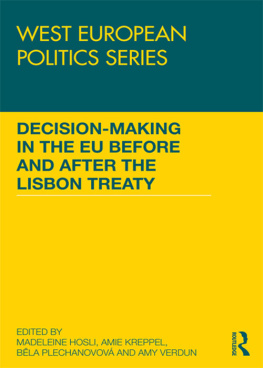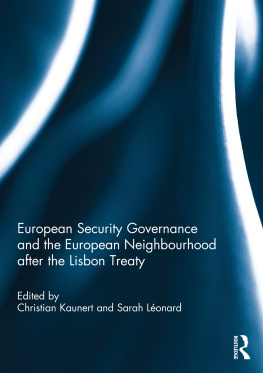
European Governance After Nice
What is the impact of institutional reform implemented by the Nice Treaty on European Governance? What should be done to enhance democratic legitimacy in the EU?
This book provides an up-to-date guide to understanding the European Union as an international institution. The contributors not only describe its functions, but also suggest reasons why it works the way it does. Analysing the pressures to which the EU is subject and its relationship with the member states, they consistently provide a comprehensive backdrop against which to discuss the various effects of the Nice Treaty.
Globalisation has led to enormous changes in the international environment which, in turn, have demanded institutional reform of the European Union in the form of the Nice Treaty. European Governance After Nice scrutinises how, and to what extent, the treaty will contribute to the solution of existing problems, examining both its positive effects and its limitations. The reforms within the EU are examined through a number of disciplines - political science, law and economics - in order to express the full extent of the different effects of the Nice Treaty on non-member as well as member countries. The contributors suggest that the threat of varying exchange rates in the future, when the Treaty has an expansionary effect on economic scale, will lead to a deepening interdependence between the excluded countries.
Koji Fukuda is Professor of International Administration at Waseda University, Tokyo and is on the Board of Directors of the Japan Association of EU Studies. Hiroya Akiba is Professor of Economics at Waseda University, Tokyo.
Waseda/RoutledgeCurzon international series
Series editor: Koichiro Agata
Books in the series
Convergence of Telecommunications and Broadcasting in Japan, United Kingdom and Germany
Edited by Koichiro Agata and Kiyoshi Nakamura
Nicholas of Cusa
A medieval thinker for the modern age
Edited by Kazuhiko Yamaki
Symbiosis of Government and Market
The private, the public and bureaucracy
Edited by Sadao Tamura and Minoru Tokita
European Governance After Nice
Edited by Koji Fukuda and Hiroya Akiba
European Governance After Nice
Edited by Koji Fukuda and Hiroya Akiba
First published 2003 by RoutledgeCurzon
Published 2018 by Routledge
2 Park Square, Milton Park, Abingdon, Oxon OX14 4RN
52 Vanderbilt Avenue, New York, NY 10017
Routledge is an imprint of the Taylor & Francis Group, an informa business
Copyright 2003 Koji Fukuda and Hiroya Akiba, selection and editorial matter, individual chapters, the contributors.
All rights reserved. No part of this book may be reprinted or reproduced or utilised in any form or by any electronic, mechanical, or other means, now known or hereafter invented, including photocopying and recording, or in any information storage or retrieval system, without permission in writing from the publishers.
Notice:
Product or corporate names may be trademarks or registered trademarks, and are used only for identification and explanation without intent to infringe.
Typeset in Baskerville by Wearset Ltd, Boldon, Tyne and Wear
British Library Cataloguing in Publication Data
A catalogue record for this book is available from the British Library
Library of Congress Cataloging in Publication Data
European governance after Nice : between the present and the future of the European Union / edited by Koji Fukuda and Hiroya Akiba.
p. cm. (Waseda/RoutledgeCurzon International series)
1. European Union. 2. Treaty on European Union (1992) 3. European cooperation. 4. EuropeEconomic integration. 5. European-Politics and government1989 I. Fukuda, Koji, 1953 II. Akiba, Hiroya, 1945 III. Series.
JN15 .E854 2003
341.2422-dc21
2002152853
ISBN 13: 978-0-7007-1717-0 (hbk)
ISBN 13: 978-1-138-99360-0 (pbk)
Contents
KOJI FUKUDA AND HIROYA AKIBA
PART I
Reform of the European Union
TAMIO NAKAMURA
HIROYA AKIBA
PART II
Issues of institutional reform
KOJI FUKUDA
NORIKO YASUE
TAKAO SUAMI
PART III
The Nice Treaty and Europes future
TOMOKO HIKUMA
TAKAYUKI ITO
Hiroya Akiba is Professor of International Economics at Waseda University, Japan. Dr. Akiba has published numerous articles in professional journals including the American Economic Review, Journal of Post-Keynesian Economics, Ricerche Economishe, Economics Letters, Journal of International Economic Integration, Journal of Socio-Economics, Public Finance, Asian Journal of Economics, International Economic Journal.
Koji Fukuda is Professor of International Administration at Waseda University, Tokyo. Dr. Fukuda is a member of the Board of Directors of the Japan Association of EU Studies. He was a Research Fellow at the College of Europe in Brugge (1992-3). He has written a number of journal articles and is the author of The Administrative Structure and Policy Processes in the European Communities (Seibundo, Tokyo, 1992); La coopration rglementaire en Europe et au Japon, Cinquieme conference ECSA-WORLD, Bruxelles, 2000.
Tomoko Hikuma is a full-time lecturer at Niigata Seiryo University. She teaches social policy and international social welfare. She graduated from the London School of Economics (M.Sc.). Her current interests include the welfare state, globalization, social rights, and core labor standards in Japan and Europe. Her recent work has focused on core labor standards and the WTO, EU social policy, and Central Europe in transition.
Takayuki Ito is Professor of Comparative Politics at the School of Political Science and Economics, Waseda University, Tokyo. His publications include Slavistik und Osteuropakunde in Japan, Osteuropa, 1983, No. 5; (ed.) Facing Up to the Past. Soviet Historiography under Perestroika (Slavic Research Center, Sapporo, 1989); Eastern Europe: Achieving Legitimacy, in Gilbert Rozman, Seizaburo Sato and Gerald Segal (eds) Dismantling Communism: Common Causes and Regional Variations (Johns Hopkins University Press, Washington, 1992).
Tamio Nakamura is Associate Professor of Law at the Institute of Social Science, the University of Tokyo. Dr. Nakamura is a member of the Board of Directors of the Japan Association of EU Studies. His publications include The Decline of Parliamentary Sovereignty: Constitutional Change in Britain Since its Accession to the European Community (University of Tokyo Press, 1993); Constitutional Features of the APEC Process: A Voluntary Approach to Regional Integration, Journal of Social Science, vol. 52, no. 2, pp. , 2000.
Takao Suami is Professor of Trade Law and EU Law at Waseda University. He is a member of the Board of Directors of the Japan Association of EU Studies. He has thirteen years practical experience as an attorney in Belgium as well as Japan. He studied law in Japan, the USA, and Europe. He is a graduate of Katholieke Universiteit Leuven in Belgium. He specializes in competition law, trade law, and basic theories of community law.


